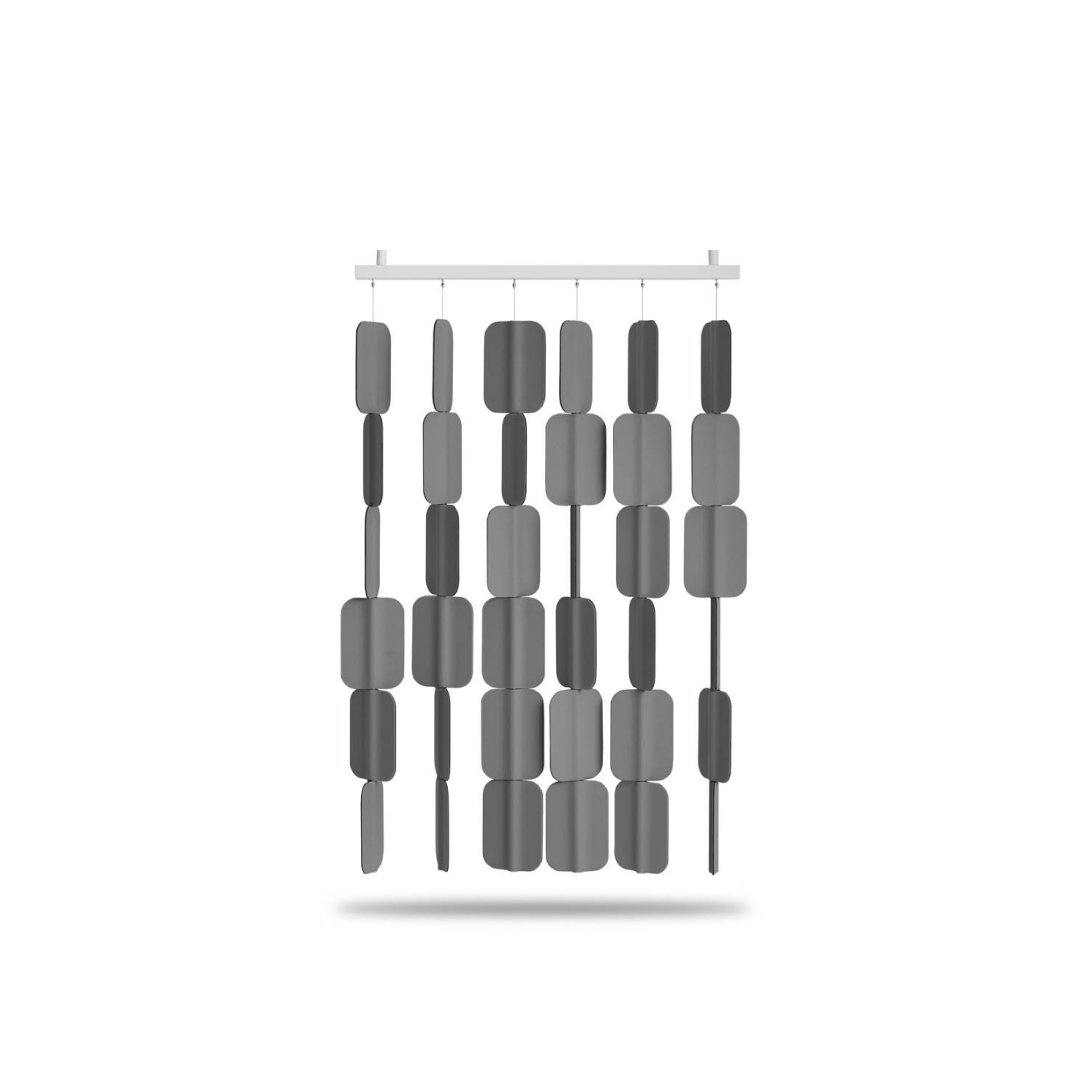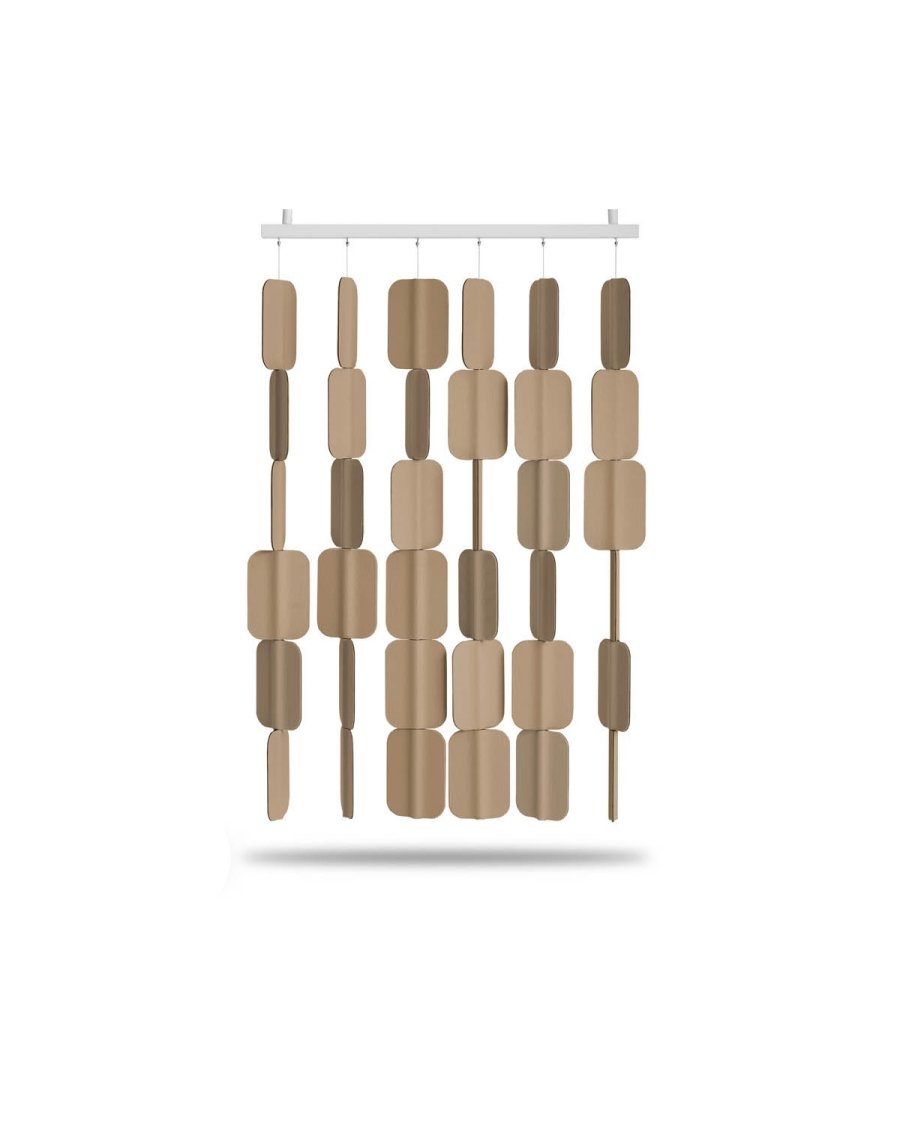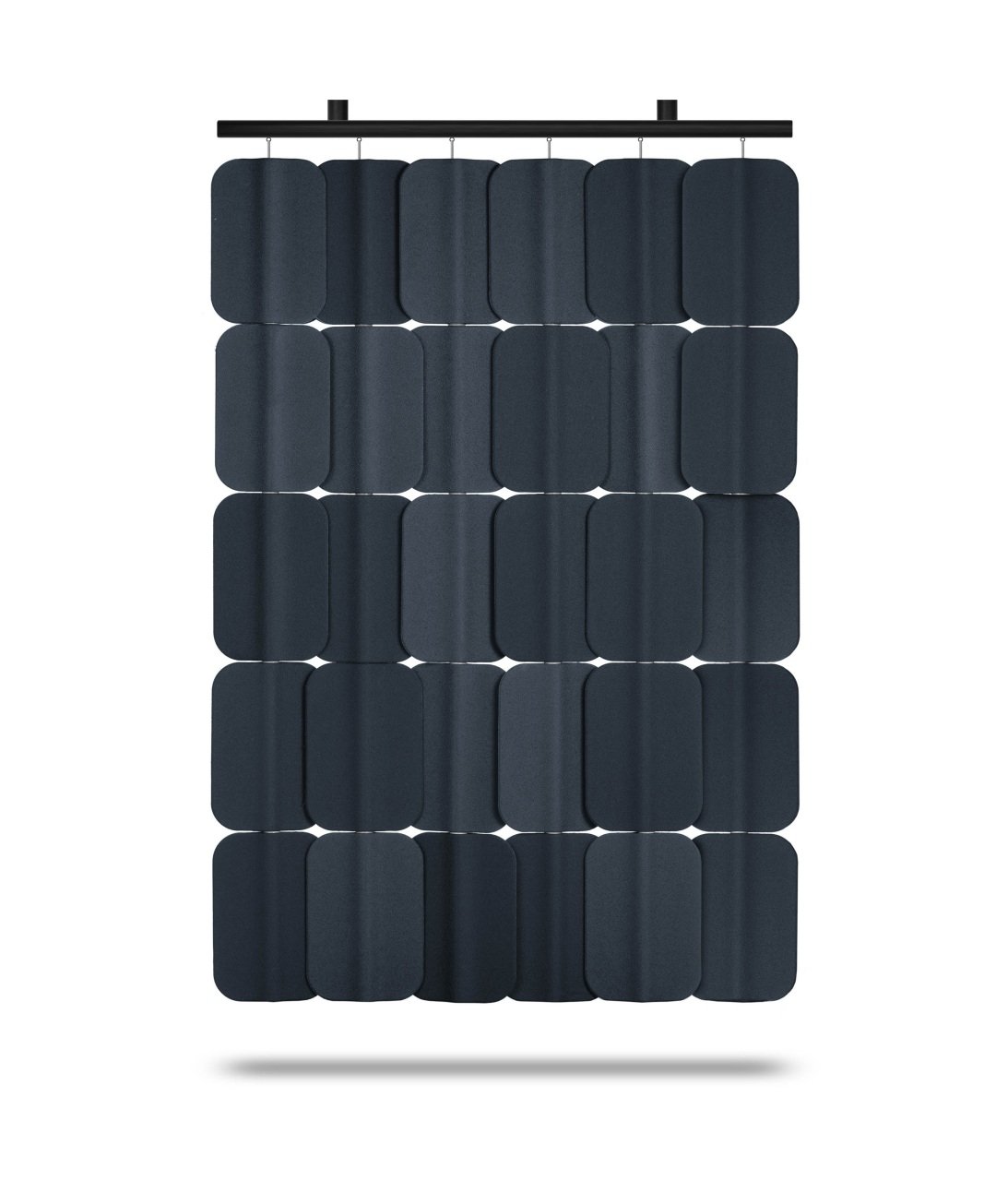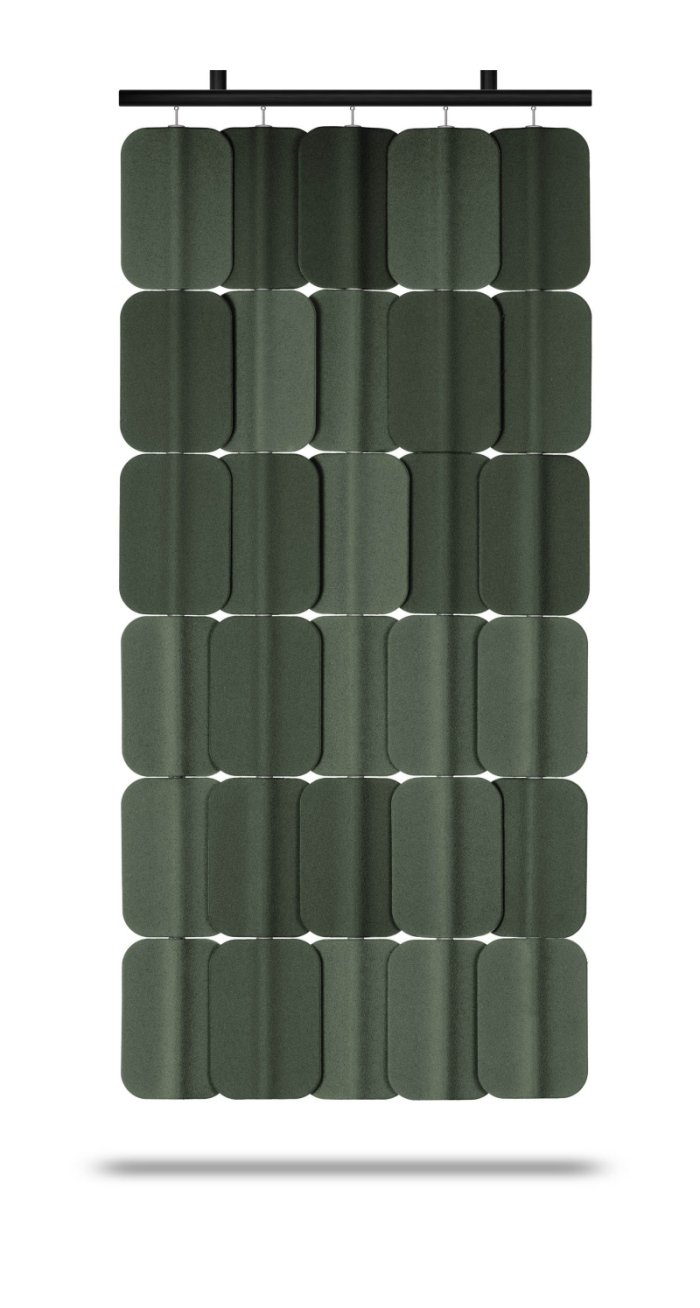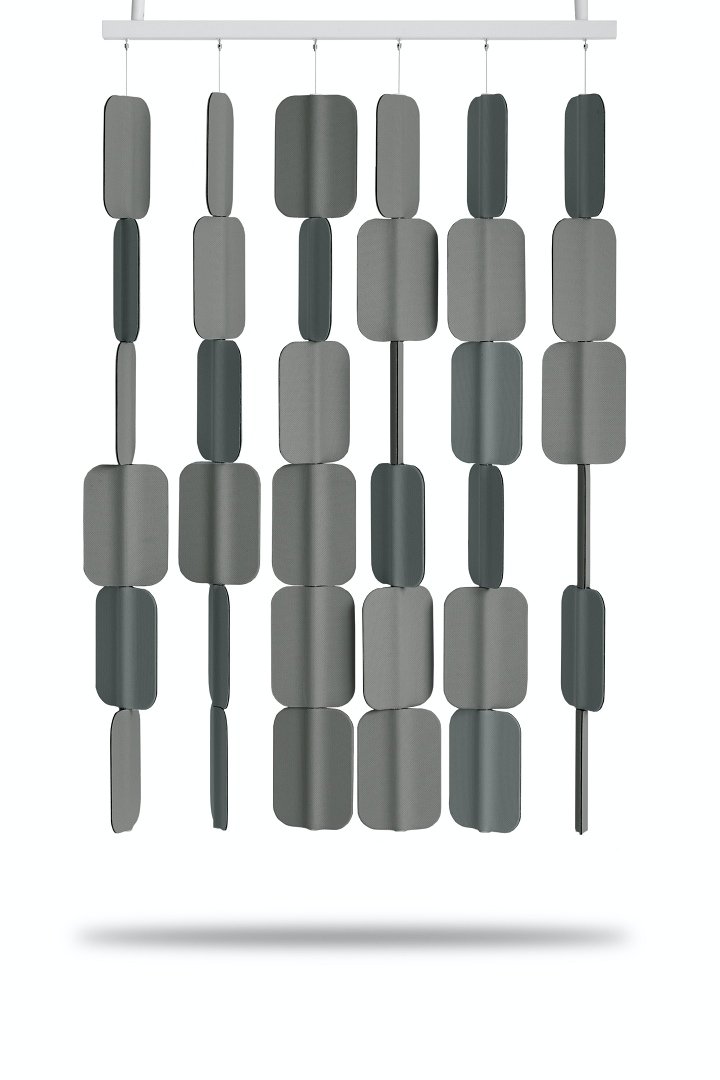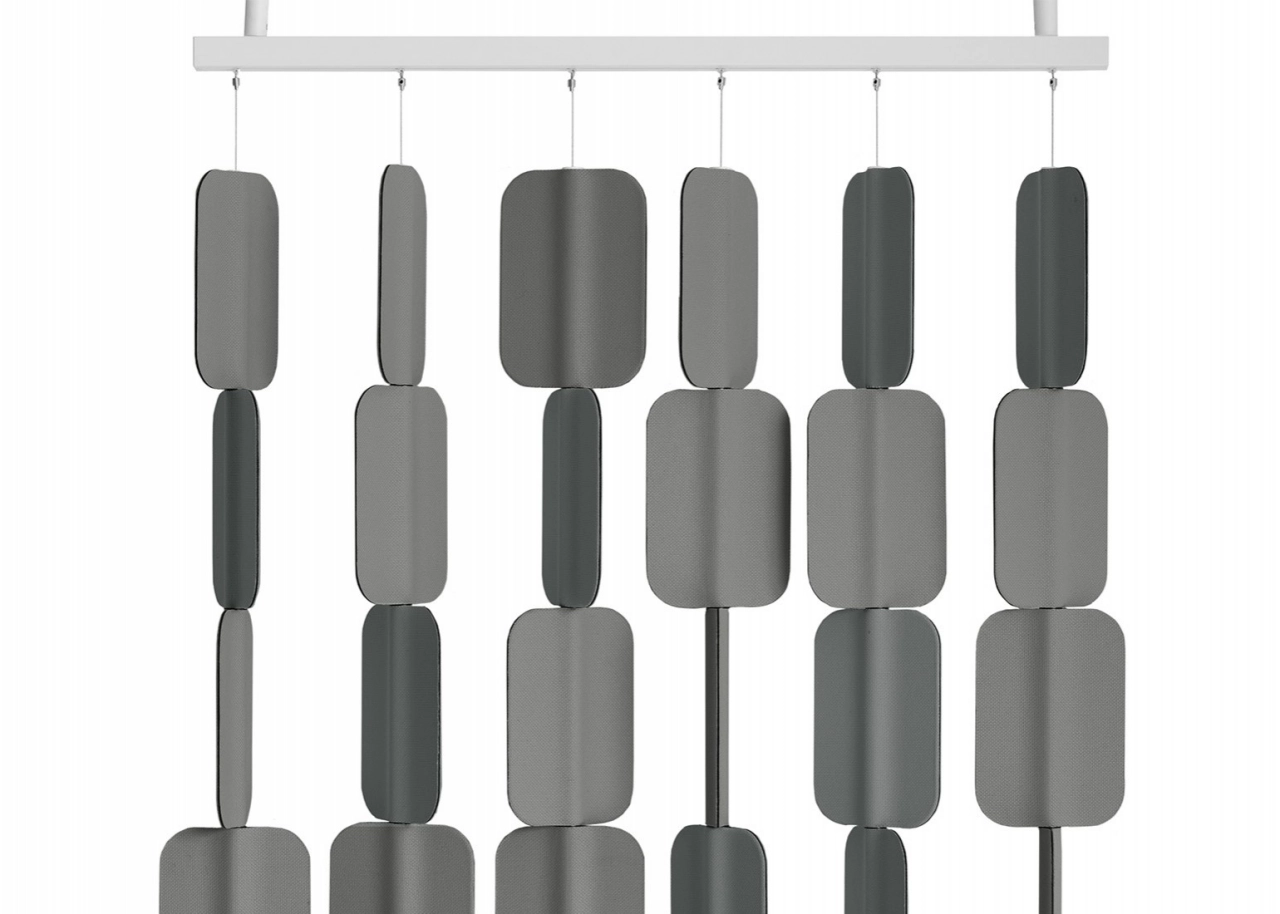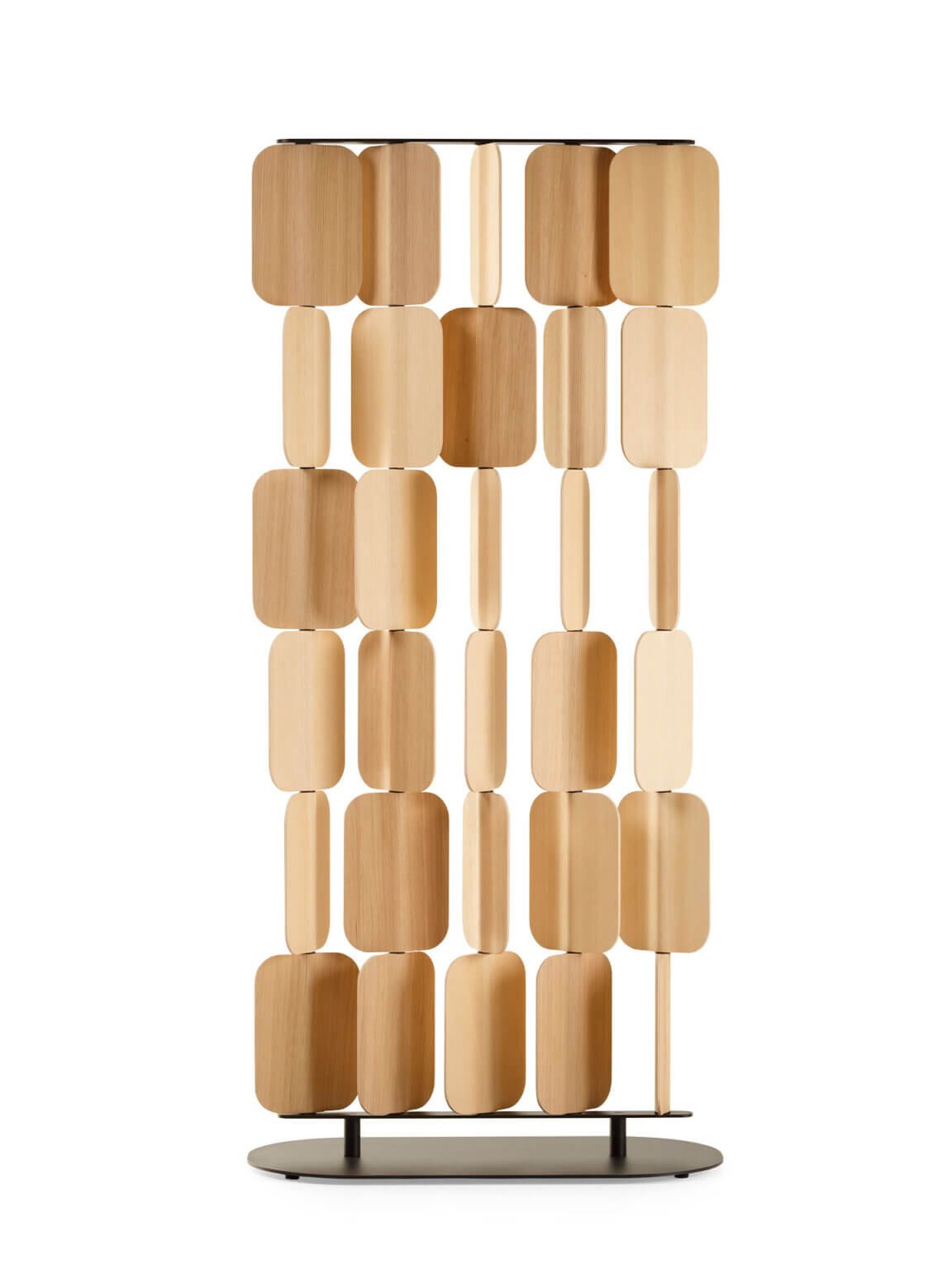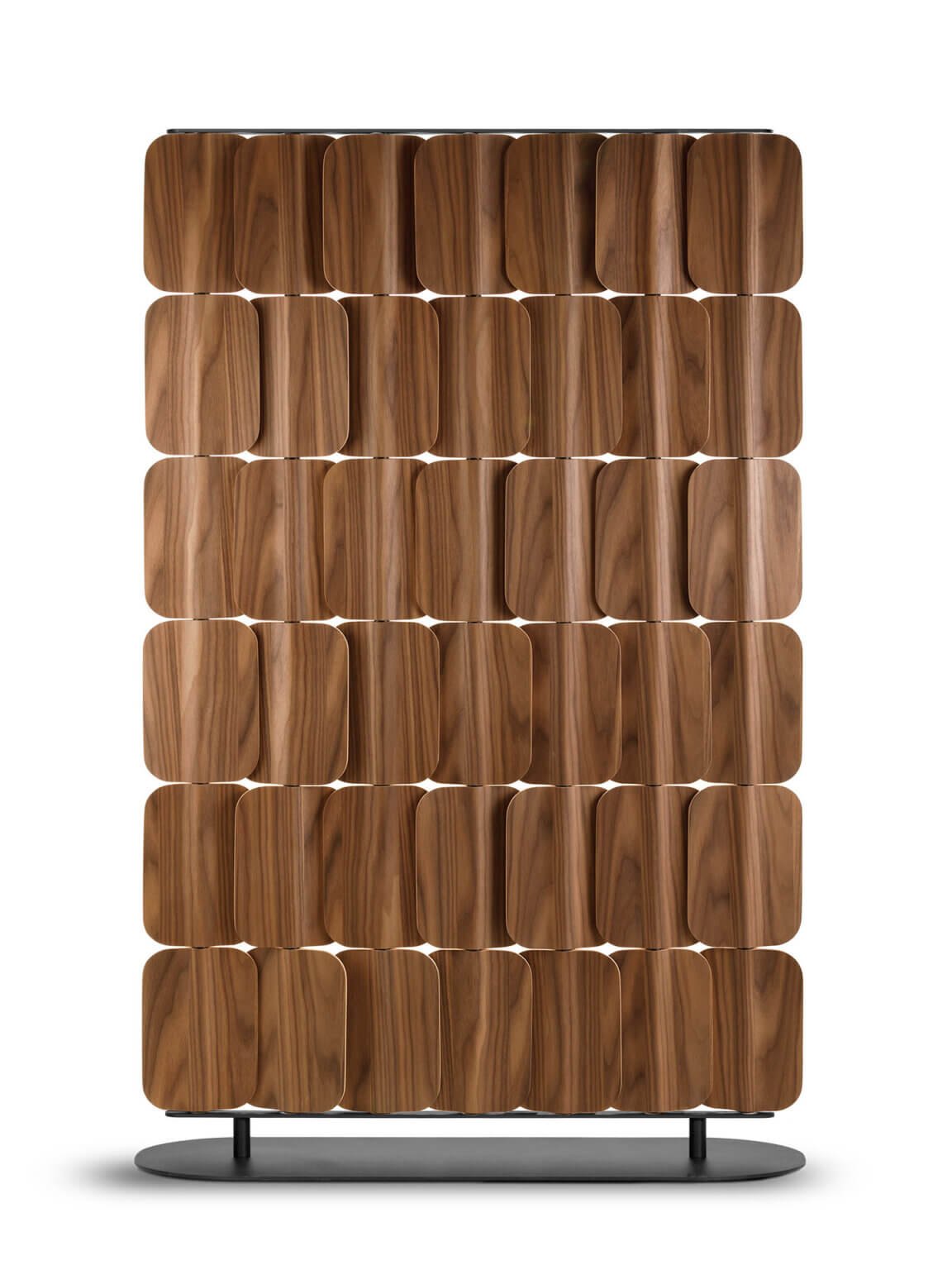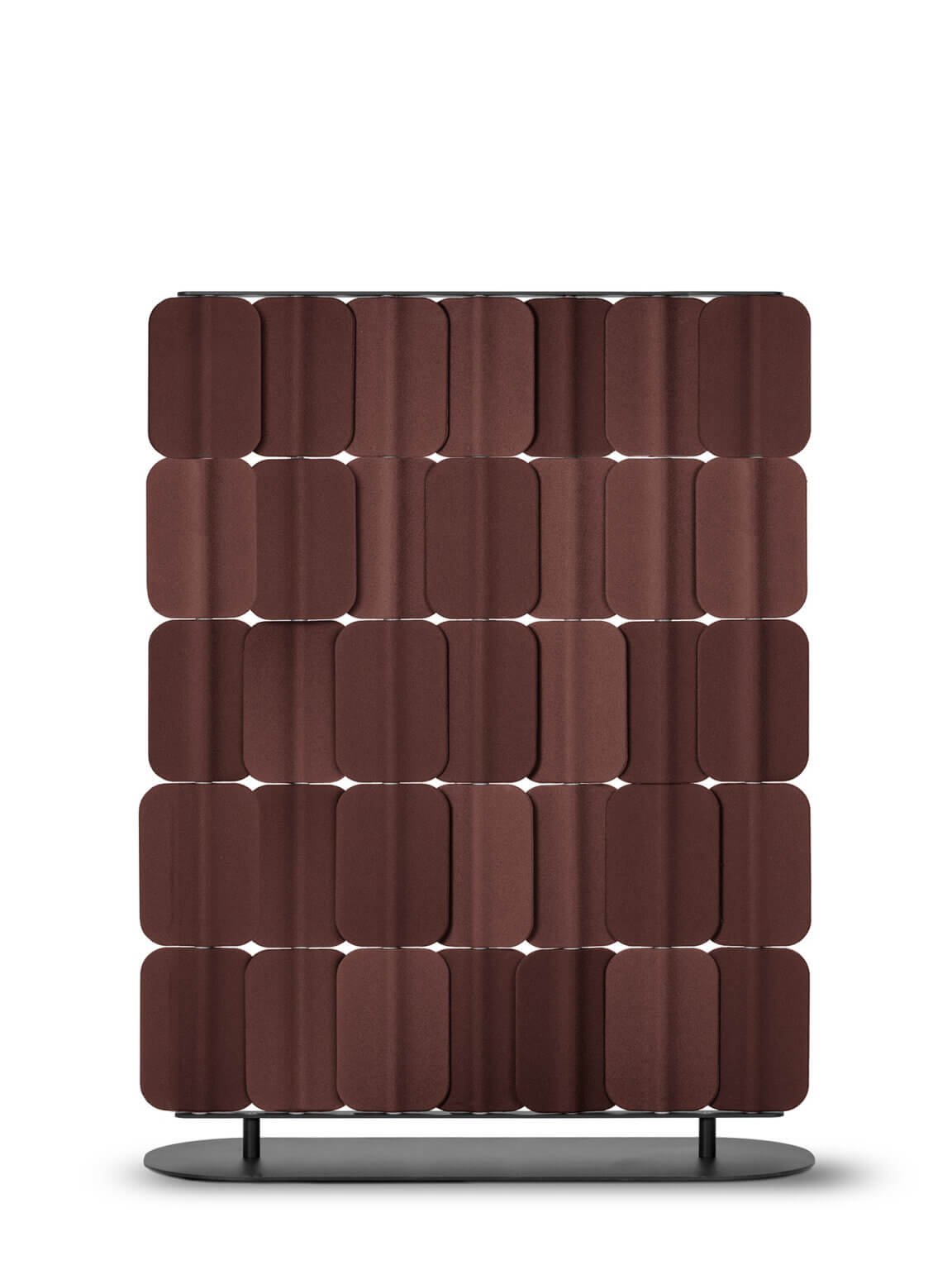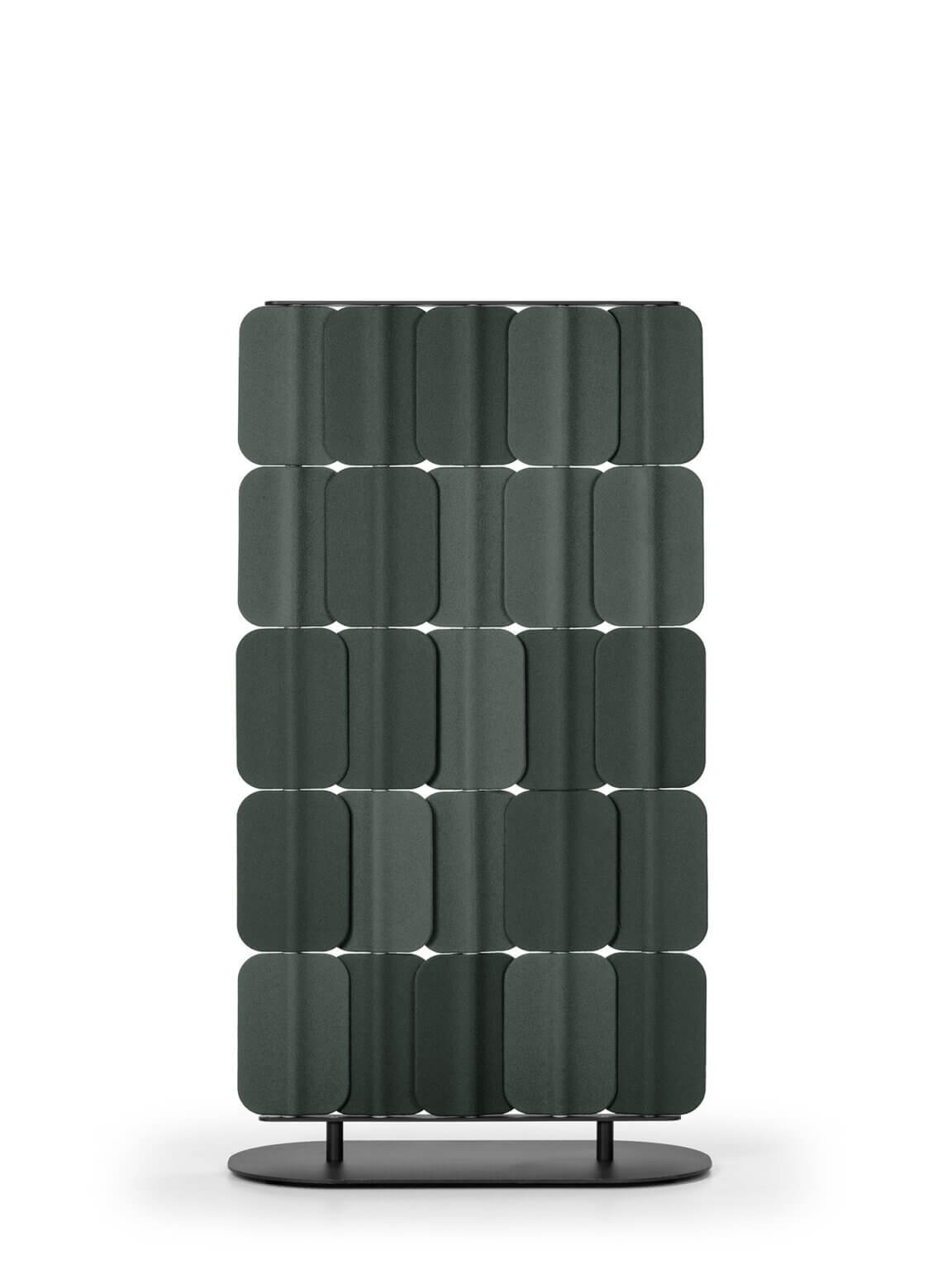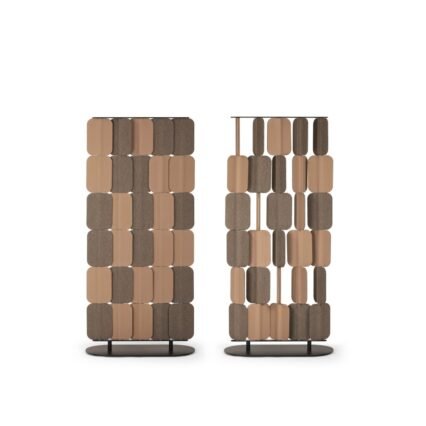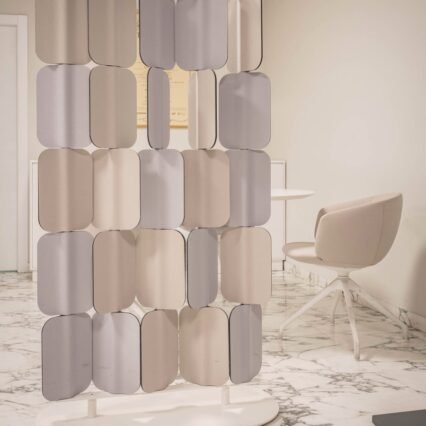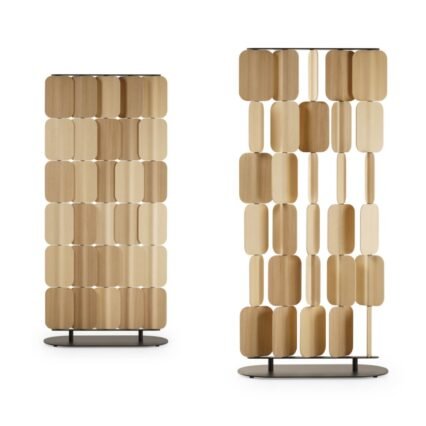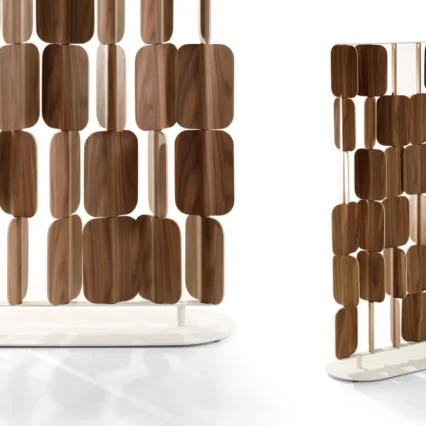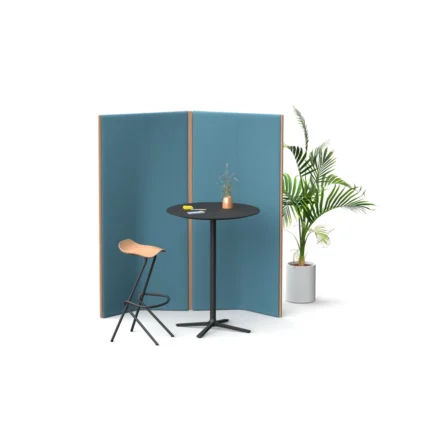patch pendant acoustic panels
PRODUCT INFORMATION
Patch Hanging Partition Acoustic Panels
Patch – Acoustic Room Dividers
Patch is a versatile collection of sound-absorbing room dividers designed to enhance acoustic comfort while maintaining visual connection with the surrounding environment.
Each freestanding structure features rotating panels that can open and close individually, allowing you to adjust privacy levels and light filtration as needed. These modular acoustic partitions are ideal for dividing and rhythmically defining spaces in open-plan offices, hotel lounges, coworking areas, and even private homes.
With its combination of functional acoustic performance and sculptural aesthetic, Patch transforms interiors into dynamic, flexible environments without sacrificing design integrity.
Technical info
The single panel is composed of a multilayer sheet of polyester and textile installed on a steel tube. Steel plate base for the free-standing version, metal rail for the ceiling hanging version. Suspended version suitable for different types of ceilings, for tightness and weights. consult an installer’s assessment. Minimum footprint of 16cm for the beam and anchoring system.
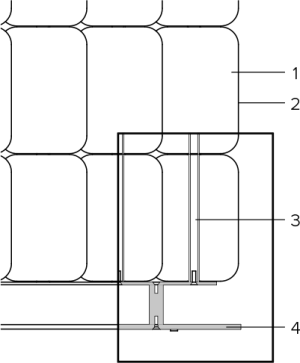
- Polyester fiber or wooden panel
- Fabric upholstery
- Steel tube
- Steel plate base
Dimensions
This collection offers many variations and sizes. Please check the datasheet page to explore all available options.
The standard finishings for the steel elements are the RAL shown. Customized RAL color finishings are available upon request.
Please note: Only fabrics from the FIVIDI – LAZER N Collection may be used on Patch panels.
The Patch collection is made to order. Lead time 10-12 weeks.
GALLERY
Wooden Edition
The Patch collection of sound-absorbing partition panels is now enriched with an elegant new option: wood. These panels are available in multilayer beechwood, offered in refined oak or walnut finishes, bringing warmth and natural sophistication to any space.

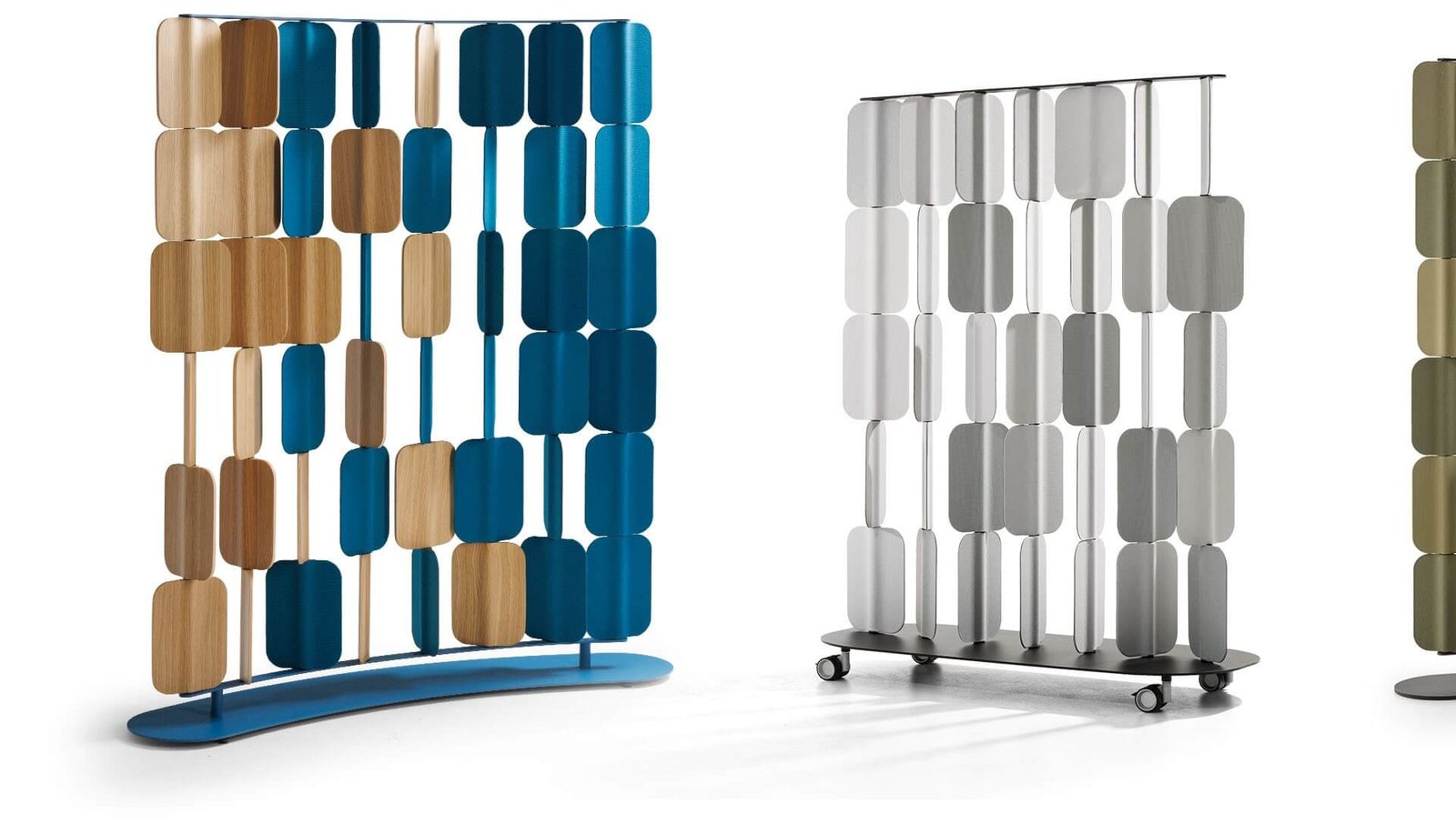
Patch Mix – Where Fabric Meets Wood
The Patch collection evolves with Mix, a bold new version that seamlessly combines the warmth of natural wood with the softness of upholstered fabric. Each panel in the Mix series features one side in elegant wood finish and the other in premium acoustic fabric, creating a dynamic and versatile aesthetic.
Perfect for spaces that demand both visual impact and acoustic comfort, Patch Mix brings a fresh dimension to room dividers, offering designers endless possibilities to play with texture, tone, and function. Ideal for offices, lounges, hospitality environments, and contemporary homes where style and performance meet in perfect balance.
VARIANTS
DOWNLOADS
Patch – Sound Absorbing Panels
Patch is an innovative collection of sound-absorbing panels designed to enhance acoustic comfort while adding a bold, modern aesthetic to any environment. Combining functionality with vibrant visual appeal, Patch panels are ideal for workplaces, hospitality settings, and residential spaces that require noise reduction without compromising openness and style.
Designed by the creative duo Defne Koz + Marco Susani, the Patch collection draws inspiration from multiple perspectives to create a unique and versatile acoustic solution. Each panel is exquisitely crafted from multilayered polyester and fabric to maximize sound isolation and absorption. The network of rotating panels, connected by a central steel tube, allows individual adjustment for personalized privacy, light filtration, and spatial division.
Patch is available as freestanding dividers with curved or straight steel bases, as well as ceiling-hung acoustic curtains with a sleek metal rail. Its modular design and wide choice of shapes, finishes, and colors make it suitable for open-plan offices, hotel lobbies, coworking areas, and contemporary homes.
With its sculptural presence and effective noise control, Patch seamlessly integrates with other modular furniture collections such as E-quo benches and tables, elevating both the functionality and design sophistication of your interiors.

